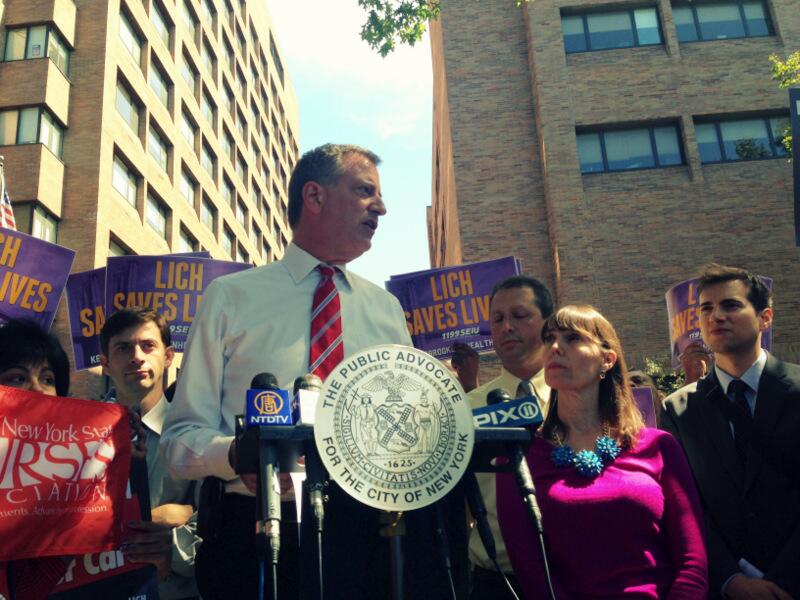Ambulances return to LICH: A ‘game changer’ de Blasio says
SUNY: Don’t come to LICH if you had a heart attack

An excited crowd greeted the news that ambulance service has started back up at Long Island College Hospital (LICH) Friday afternoon. Public Advocate and mayoral frontrunner Bill de Blasio made the announcement at a rally that included cheering nurses, patients and supporters like Councilmembers Brad Lander and Steve Levin.
“We have stood up to save LICH with civil disobedience and court actions,” de Blasio said, adding that emergency rooms around Brooklyn will be less crowded now. “Minutes matter in an emergency. Losing ambulances to LICH put an entire community at risk. Today that ends.”
SUNY Downstate, which operates LICH, has barred ambulances from LICH’s ER since June, increasing travel times and overcrowding at hospital ER s across Brooklyn.
